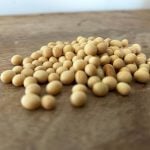Clear and reasonable rules for low levels of genetically modified grains and oilseeds need to be part of any Trans-Pacific Partnership agreement, Canadian farm leaders told their counterparts from Peru and other countries during a recent trade trip to Lima. “It was a great opportunity to explain to negotiators and other stakeholders why the TPP



